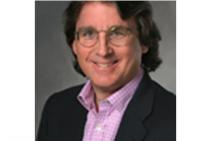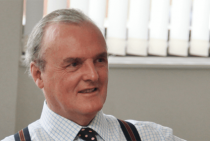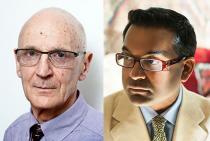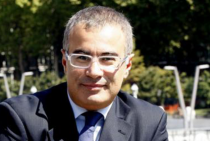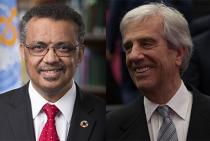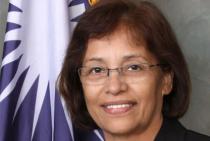Kuo ha’u a Gita pea ‘alu, pehe ki he ‘aahi na’e fai ‘e Ian ki he ‘Out Ha’apai. Ko ‘etau langa fonua 'i he ‘Out Ha’apai he hili ‘a Ian (Gategory 5) ‘oku te’eki ‘osi. ‘Ofa ke ‘oua ‘e lelea hotau loto ka tau toe ki’i vakai si’i ki he’etau tonounou na’e fai ‘i Ha’apai he ko e Pule’anga eni ‘e tolu mo e ‘ikai lava lelei. - 'Inoke Fotu Hu'akau.
You are here
Results for Opinion
Friday 16 February 2018
Nuku'alofa, Tonga
Friday 16 February 2018
Geneva, Switzerland
Closing the divides in our fractured world will require collaboration among many stakeholders. And, more often than not, it is dialogue that sets cooperation apart from conflict, and progress from painful reversals of fortune. The Greek Stoic philosopher Epictetus once said, “We have two ears and one mouth so that we can listen twice as much as we speak."
Thursday 8 February 2018
Brasilia, Brazil
With obesity and diet-related diseases on the rise, and hunger and malnutrition affecting more people than ever before, scientists are focusing not only on how to feed the planet, but on what to feed it. Today, bad diets seem to have more staying power. Natural and raw foods are being replaced by ready-to-eat meals and processed foods. This trend has created an unhealthy globalized menu, one associated with obesity, diabetes, hypertension, and shortened lives. By Eduardo Nilson.
Wednesday 7 February 2018
Nuku'alofa, Tonga
Kuo hiki a Tonga mei he lao ‘o e ‘ikonomika-tonga, ko e “Si’i Femolimoli’I” ki he “Lahi ‘au kae Si’i ‘aku”, malie! 'Oku toe kanoni ‘aki foki hotau palopalema ‘etau ma’u ha fa’ahinga Pule’anga ‘oku fisi ki tu’a mei ai ‘a e fa’ahinga ta’emaau na’e te’eki ai ke tau mamata kiai he ngaahi kuonga ‘o onopooni ‘i Tonga. - 'Inoke Fotu Hu'akau.
Monday 29 January 2018
Seattle, USA
One of the greatest challenges facing women in much of the developing world is the gap between their legal rights and their ability as individuals to claim them. But that could soon change, thanks to a case brought to the UN by two Tanzanian widows who were dispossessed of their homes by discriminatory inheritance laws. Tanzania and countries in similar situations must demonstrate their commitment to women’s rights by eliminating systematic discrimination. By Tzili Mor.
Monday 29 January 2018
New York, USA
Each new wave of technology increased productivity and access to knowledge. Technology powered globalization and economic growth. For decades, it made the world a better place. We assumed it always would. Then came 2016, when the Internet revealed two dark sides. By Roger McNamee.
Friday 19 January 2018
Nuku'alofa, Tonga
He ‘ikai ke tau lalaka kitautolu ha fa’ahinga fatongia ‘oku laka mo e taimi hono ngaahi ngafa pea tau ‘efi e fa’ahinga pikimate pehe ki he lakanga ‘i he ‘uhinga tokua ko e fili mai koaa kinautolu ‘e he kakai, ‘o tau sio kehe ai meihe fiema’u ‘a e ‘atamai ‘oku kei masila, telia e ngaue ‘a e fonua mo hono kaha’u. Ko e poipoila ko eni ‘oku ‘i ai hotau Pule’anga he fakapopo’uli hono kau ma’umafai ko e palopalema ‘oku lahi ki he fonua. – ‘Inoke Fotu Hu’akau.
Wednesday 17 January 2018
London, United Kingdom
Plastics are among the most popular materials in use today. Given the material’s versatility, it is little wonder that some 320 million tons of it are used around the world each year. But plastics also pose a serious environmental threat. ...As plastics change, the ways countries integrate them into their economies must change, too. By Michael Stephen
Wednesday 10 January 2018
London, United Kingdom
Since Donald Trump took over the United States presidency a year ago, doubts over his mental stability and his very sanity have been mounting. But, beyond claiming on Twitter that he is a “very stable genius,” what could Trump actually do to prove that he is psychologically fit for what, by some definitions, is the world’s highest office? There is no clear physical test for mental illness. By Raj Persaud and Peter Bruggen
Tuesday 9 January 2018
Washington D.C., U.S.A
The size of oxygen-starved ocean “dead zones,” where plants and animals struggle to survive, has increased fourfold around the world, according to a new scientific analysis. “Oxygen is fundamental to life in the oceans,” said Denise Breitburg, lead author and marine ecologist with the Smithsonian Environmental Research Center. “The decline in ocean oxygen ranks among the most serious effects of human activities on the Earth’s environment.”
Thursday 4 January 2018
Abu Dhabi, UAE
Because mankind has a deep yearning for a sense of belonging and for leadership, humans naturally form groups with established leaders. Some groups are positive manifestations of collaboration and solidarity among individuals. But when groups are based on an ideology or a particular tribe, they can become discriminatory and oppressive toward non-members, especially if a domineering, charismatic leader is in charge. The emergence of populist and nationalist movements in the United States, the United Kingdom, France, and other European countries suggests that tribalism is on the rise in the West. By Sami Mahroum.
Wednesday 20 December 2017
Geneva, Switzerland
We all know how bad tobacco is, that it kills millions of people every year, and that it harms many more. We also know that tobacco companies have consistently lied about how much damage their products cause. The WHO Protocol to Eliminate the Illicit Trade in Tobacco Products aims to prevent illicit trade, such as smuggling. While 33 countries and the European Union have signed the protocol, it needs the support of seven more governments before it can enter into force.
Wednesday 13 December 2017
Princeton, USA
A Saudi prince has been revealed to be the buyer of Leonardo da Vinci's "Salvator Mundi," for which he spent $450.3 million. Had he given the money to the poor, as the subject of the painting instructed another rich man, he could have restored eyesight to nine million people, or enabled 13 million families to grow 50% more food. - Peter Singer.
Monday 11 December 2017
New York, USA
Globalization, which was supposed to benefit developed and developing countries alike, is now reviled almost everywhere, as the political backlash in Europe and the US in recent years has shown. The challenge is to minimize the risk that the backlash will intensify, and that starts by understanding – and avoiding – past mistakes.
Thursday 7 December 2017
Beijing, China
The US has talked itself into Kim Jong-un’s trap of exaggerating how much power his rocketry gives him. If the US could deter a much stronger Soviet Union from taking an isolated West Berlin for three decades, it can deter North Korea. - Joseph S. Nye.
Thursday 30 November 2017
Geneva, Switzerland
On this year’s World AIDS Day, on December 1, we should remember the 35 million people who have died of AIDS-related illnesses, and the 76 million who have been infected with HIV since reporting began. And we can celebrate the fact that nearly 21 million people living with HIV now have access to life-saving treatment. But we also must not lose sight of the fact that more than 15.8 million people are still awaiting treatment, while an estimated 11 million people do not even know they have the virus.
Monday 27 November 2017
Canberra, Australia
The Australian government has published a new Foreign Policy White Paper. It is 14 years since the Howard government launched its own Foreign Affairs and Trade White Paper in 2003, although the Gillard government produced the 'Australia in the Asian Century White Paper' in 2013. Much has changed in Australia’s international environment since either of those papers were released. ...The White Paper makes clear that the most significant of the challenges Australia's policymakers now face stems from the two major powers in our region — the United States and China — and the relationship between them. - East Asia Forum, ANU.
Tuesday 21 November 2017
Brighton, United Kingdom
Despite the clear evidence linking poverty to psychological distress, policies tackling poverty do not typically take shame into account. ... Being poor is a highly shameful experience, degrading one’s dignity and sense of self-worth. While the manifestations and causes of poverty differ, the humiliation that accompanies it is universal. Recent research conducted at the University of Oxford found that from China to the United Kingdom, people facing economic hardship – even children – experience a nearly identical assault on their pride and self-esteem.
Sunday 19 November 2017
Bonn, Germany
Next year’s “Talanoa Dialogue” – to be convened by Fiji, which last week became the first island state to chair UN climate talks – will help countries identify exactly how they can achieve the goals set in the Paris agreement. That dialogue, which countries should approach in good faith, must be a springboard for further action. By Hilda Heine and Kevin Rudd
Friday 10 November 2017
3 comments
Nuku'alofa, Tonga
What kind of government would Tongans like to have working for them following the 16 November election? It's evident that the new government, to be formed by the end of this year, has an enormous challenge ahead, because our elected leaders need to rescue Tonga from a “free-fall” situation that we have found ourselves in, after seven years under a reformed system that has not met the public's expectations. Editor's Comment, by Pesi Fonua





